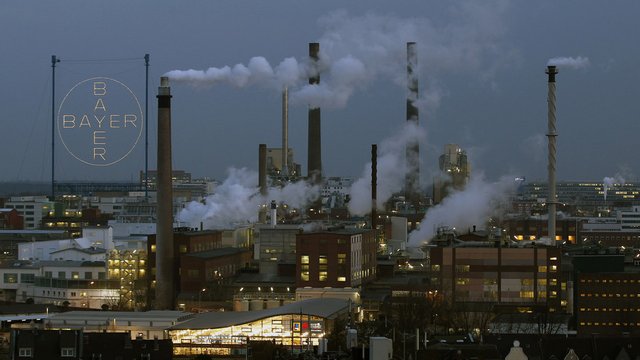Bayer, Dow, L’Oreal using potentially harmful chemicals illegally – investigation
More than 650 companies are breaking European chemical safety laws, according to an investigation from German environmental group BUND. As a result, potentially harmful chemicals can be found in food, cosmetics, and toys.
“Chemical companies have been disregarding the law for years and getting away with it, selling substances that might cause hormonal cancers, brain disorders and other severe health problems,” said BUND’s chemical policy officer Manuel Fernandez. “EU and national authorities need to raise their game in a big way.”
The European Chemicals Agency (ECHA) acknowledged that companies have been known to flout chemical safety laws last November, investigating 700 widely used chemicals and finding that two thirds of them broke REACH, the agency’s key safety regulation.
FILE PHOTO: A Bayer plant in Leverkusen, Germany © Reuters / Ina Fassbender
The BUND report, published Tuesday, names some of the companies responsible, and identifies some of the potentially deadly substances.
A total of 654 companies are failing to perform the required safety checks mandated by REACH, according to the report. Some of the companies named therein are already bywords for safety scandals – such as Bayer, currently facing more than 11,000 lawsuits after US and European courts found that an ingredient in subsidiary Monsanto’s ‘Roundup’ weedkiller caused multiple cases of cancer.
Others – like L’Oreal, Michelin, food giant DSM and medicine maker Merck – manufacture products that people have come into contact with on a daily basis.
Some of the chemicals that make their way into everyday goods include dibutyl phthalate, a plasticizer used in flooring, toys, leather, paper and cardboard that is highly toxic to aquatic life and can harm unborn children and decrease fertility. Companies using dibutyl phthalate have not completed the hazard identification required by REACH.
Nor have they completed safety checks on methyl acetate, a chemical that can cause drowsiness, dizziness and serious eye irritation. Methyl acetate is commonly found in adhesives, cleaning products, and cosmetics.
Trichlorethylene, an industrial chemical, can expose workers to serious irritation, and may cause cancer and genetic defects. Safety analysis for this substance is also missing or incomplete. BUND identified 940 suspect chemicals, but could not verify the compliance status of around 700.
BUND managed to get a hold of the companies’ names through freedom of information requests from the German government, which conducted its own analysis in 2014. However, the organization believes that its findings may only be the “tip of the iceberg,” as many files returned were incomplete, and had company names redacted.
“The very foundation of EU chemical safety rules are being ignored,” said BUND’s Tatiana Santos. “BUND revealed the tip of the iceberg; now it is on ECHA to tell us the rest.”

Perhaps the best thing we can do is, boycott those products and grow our own food. Rooftop gardening might work.
To listen to the audio version of this article click on the play image.

Brought to you by @tts. If you find it useful please consider upvoting this reply.